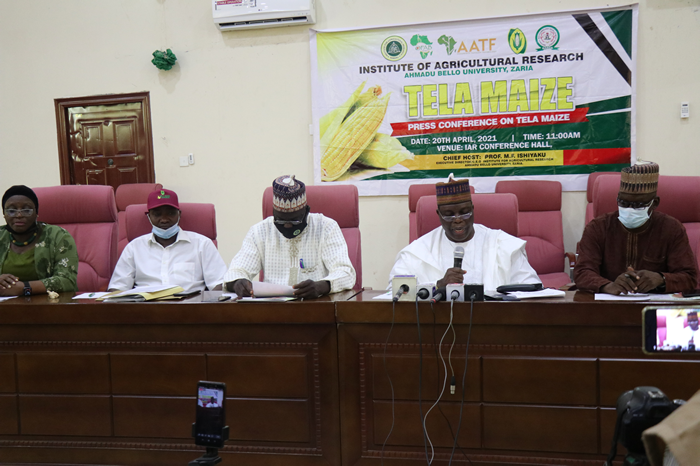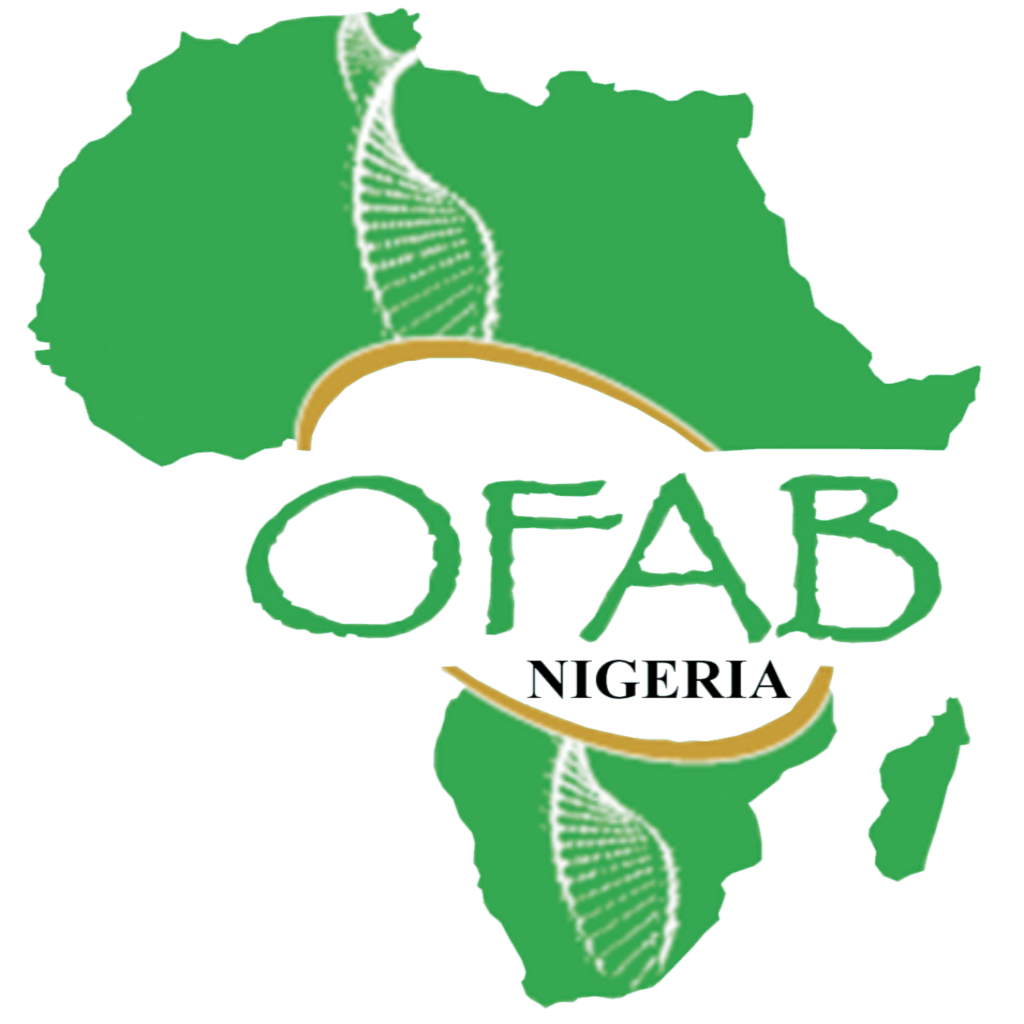
Nigerian farmers are looking forward to improving their livelihoods through the production of TELA Maize variety. Experts say the introduction of TELA maize to resist insects would make maize production cheaper in Nigeria. TELA Maize is a transgenic crop developed to resist Fall Army Worm and tolerate drought. It will not only provide stable production of maize but it would expand maize production to marginal areas where rainfall is not so high.
Farmers who participated in the final Confined Field Trial harvest for TELA Maize Harvest at the Institute for Agricultural Research (IAR) Zaria, Kaduna State said they are waiting anxiously for the final unveiling of the variety which would not only make them to harvest more but will ensure the sustenance of national food security. Malam Tafida who spoke on behalf of the farmers said “Tela maize will add value to the production; we will earn more money by producing more.” The farmers said they would continue to strive to ensure that food items are not imported into the country.
While the Executive Director of IAR, Professor Mohammad Ishiyaku disclosed that TELA Maize would make maize production cheaper in Nigeria. According to him, the crop’s economic benefits is that farmers will save about N9 billion from 500 hectares by not spraying with insecticides. The crop he said is also free from drought effects. IAR, he said recognises the importance of cutting-edge tools in sharpening research output. It is in this vein that it combines conventional and modern genetic engineering tools to discover scientific solutions to farmers and consumer problems. The ED was represented by Professor Bitrus Ahmed.
Briefing the media on the sidelines of the CFT harvest, Director General /CEO, NABDA, Professor Abdullahi Mustapha said the adoption of TELA maize will help the country attain self-sufficient in maize production with its resultant benefits. The NABDA DG noted that biotechnology and its tools have opened a window of opportunity to Nigeria to address challenges facing food crops. As a country, agriculture was one of the major employers of labour, but in recent times, our agricultural processes started encountering challenges of insects/pests, drought, weediness, floods, gully erosion, oil spillage among others. This led to reduced yield and made farmers very unattractive, especially to the youth. Professor Mustapha assured that NABDA will continue to work with IAR, Zaria and other institutions across Nigeria and beyond to promote biotechnology usage and research development in agriculture as one of the most potent options available to revive agriculture and make it net contributor to the country’s Gross Domestic Product (GDP).
On her part, the Country Coordinator, OFAB Nigeria, Dr Rose Gidado speaking on the productivity of the TELA Maize, said farming is more about productivity and harvestable yield, and harvestable yield is what would be realized in the TELA Maize project.
Relatedly, the Principal Investigator for TELA Maize, Professor Adamu Rabiu who also addressed the journalists agreed that the adoption of TELA Maize would yield economic benefits and make Nigeria become self-sufficient in maize production. The CFT, according to him, is in three phases: The first trial is breeding for fall army worm resistance while second trial is for those raw materials breed that are resistant to stem borer and the third trial is about those materials evaluated that could do well in the presence of drought under the optimum condition. He explained that Fall Armyworm could cost 80 per cent yield losses and if not properly managed, can lead to a total yield loss. He also noted that the TELA Maize project is aimed at alleviating these two major constraints of insect pest that affect maize and drought. The maize variety is expected to be available for cultivation by 2022.Nigeria has joined six other African countries which are Kenya, Uganda, Tanzania, Ethiopia, Mozambique, and South Africa, where TELA maize is currently being developed to improve farmer’s productivity on the continent. Nigeria hopes to bridge the maize production deficit so as to meet up local demand.

